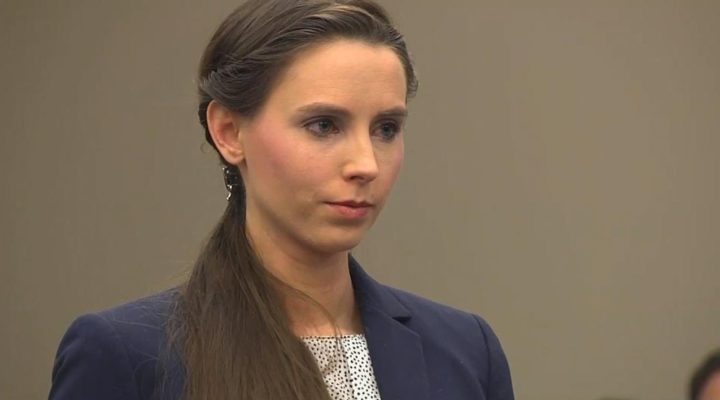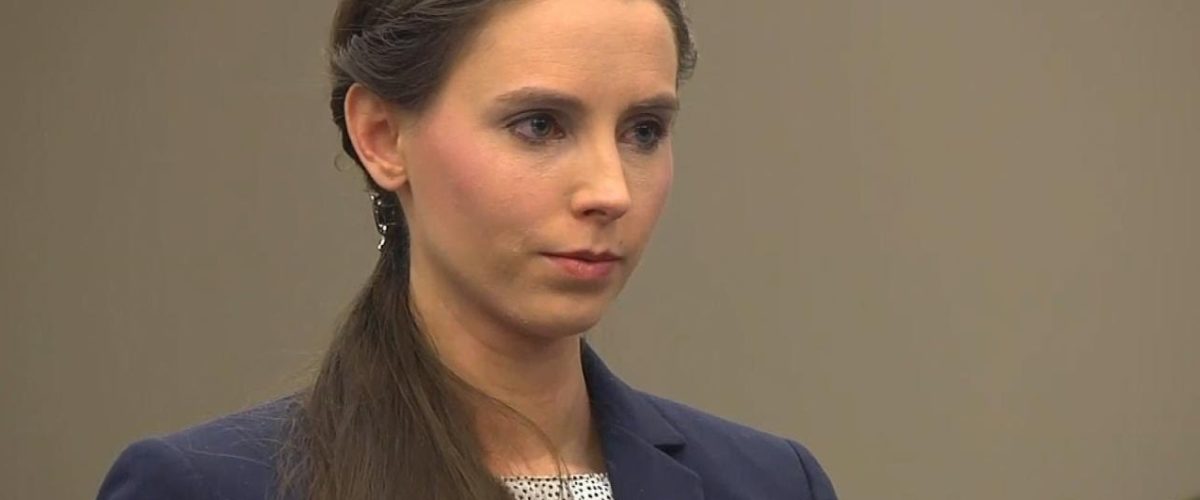The first woman to go public with allegations of sexual abuse by Larry Nassar, the former sports medicine doctor at Michigan State University, says the laudatory public reaction to her story would have been different if it had happened at church.
Rachael Denhollander, star witness in the sentencing phase of the former USA Gymnastics director’s trial for criminal sexual misconduct, gained widespread attention in national and Christian media when she invoked her faith in her impact statement.
“I pray you experience the soul-crushing weight of guilt so you may someday experience true repentance and true forgiveness from God, which you need far more than forgiveness from me — though I extend that to you as well,” she said to her abuser.
But Denhollander, whose husband has a master of divinity degree from Southern Baptist Theological Seminary and is currently enrolled in doctoral studies there, said advocating for other victims of sexual assault within the religious community once caused her to leave her church during a different scandal involving an evangelical megachurch.
Denhollander, the last of more than 150 survivors providing impact statements in the highly publicized case against Nassar, says church “is one of the least safe places to acknowledge abuse.”
“That’s a hard thing to say, because I am a very conservative evangelical, but that is the truth,” Denhollander said in an interview with Christianity Today. “There are very, very few who have ever found true help in the church.”
Denhollander said she and her husband left a church in Louisville, Ky., that was “directly involved in restoring” C.J. Mahaney, the former president of Sovereign Grace Ministries accused of covering up sex abuse in a class action lawsuit dismissed due to statute of limitations in 2014.
She said they were encouraged to leave when they spoke out against the congregation’s support of the church-planting network and its leaders, convincing her the church would never take her own account of experiencing abuse seriously.
“When you support an organization that has been embroiled in a horrific 30-year cover-up of sexual assault, you know what that communicates to the world and what it communicates to other enablers and abusers within your own church,” she said. “It’s very obvious that they are not going to speak out against sexual assault when it’s in their own community.”
Denhollander said Christian leaders “are very happy to use sexual assault as a convenient whipping block when it’s outside our community.” But when it was within their own community, she said, the church’s response “was to vilify the victims or to say things that were at times blatantly and demonstratively untrue about the organization and the leader of the organization.”
“There was a complete refusal to engage with the evidence,” she said. “It did not even matter.”
One of the voices heaping praise on Denhollander’s impact statement is Albert Mohler, president of Southern Baptist Theological Seminary in Louisville, Ky.
“The only reason I am able to have the support of these leaders now is because I am speaking out against an organization not within their community. Had I been so unfortunate so as to have been victimized by someone in their community, someone in the Sovereign Grace network, I would not only not have their support, I would be massively shunned. That’s the reality.”
“In her statement concerning the sentencing of Dr. Nassar, she not only spoke eloquently from the deep reservoirs of a Christian worldview, but she spoke directly to the doctor with the power of the Christian gospel,” Mohler said in a podcast Jan. 25.
Mohler said the “moral clarity” in Denhollander’s words “can only emerge from a biblical worldview.”
Her testimony moved beyond “the witness to good and evil,” Mohler said, to “a powerful witness to the gospel of Jesus Christ, the gospel that speaks so honestly about sin, and the gospel that so honestly promises in Christ salvation from sin.”
After several families in Mahaney’s former church joined in a 2012 lawsuit alleging collusion to cover up reports of sexual abuse, Mohler and two others vouched for their friend and co-founder of Together for the Gospel — a biennial meeting popular with young Calvinists in the Southern Baptist Convention — in a statement posted online that later disappeared without explanation.
Mahaney withdrew from the conference program in 2014 but returned to the stage in 2016.
Denhollander said if her abuser had been in Mahaney’s church rather than a medical doctor, “I would not only not have evangelical support, I would be actively vilified and lied about by every single evangelical leader out there.”
“The only reason I am able to have the support of these leaders now is because I am speaking out against an organization not within their community,” she said. “Had I been so unfortunate so as to have been victimized by someone in their community, someone in the Sovereign Grace network, I would not only not have their support, I would be massively shunned. That’s the reality.”


